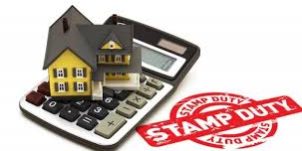As announced by the chancellor, Rishi Sunak, the new stamp duty holiday has got potential property purchasers excited, as it means that any purchase of a property up to £500,000 will be exempt from paying any tax.
The waiver is effective immediately on homes in England and Northern Ireland until 31 March 2021, with The Treasury saying that nine out of 10 people on the property ladder this year will pay no stamp duty as a result.
Whilst in the Bromley borough, a large number of properties are valued over the £500K mark, a not-insignificant number of houses and flats are valued at under this threshold, meaning the property market in the area as a whole should receive a significant boost.
Here at Bromley Property Company, we thought we’d fill you in on everything you need to know about these changes to Stamp Duty:
What has changed to stamp duty rates?
Before the temporary measures came into force (on Wednesday 8 July) there was no stamp duty to pay (in England and Northern Ireland) on property costing up to £125,000. Buyers paid 2% on up to £250,000 and 5% on properties between £250,001 and £925,000.
The rates shoot up to 10% for a home costing more than £921,001 up to £1,500,000 and 12% on anything over £1,500,001.
For first-time buyers rates were different. The tax started at £300,000 (if buying a property worth less than £500,000) and 5% was then charged on anything over that amount between £300,001 and £500,000.
From now until March next year buyers won’t pay any stamp duty on a property costing £500,000 or less- which is fantastic news for those looking to move!
What stamp duty savings can be made?
How much a buyer could save under this announced measure will depend on how much the property costs.
If you buy a property for £400,000 in England (and you’re not a first-time buyer), you would usually pay £10,000, made up of £2,500 on the portion between £125,001 and £250,000, and £7,500 on the portion between £250,001 and £400,000.
But now you would pay no stamp duty on the property at all – saving you £10,000.
For a property costing £400,000, a first-time buyer will save £5,000.
What if I’m buying a property over £500,000?
The reduction in stamp duty costs on the first £500,000 of a property purchase means a saving of £15,000.
What if I’ve exchanged but not completed?
A stamp duty bill is triggered only when you complete the purchase of a property. So if you’ve exchanged – prior to 8 July – but not completed, you’ll benefit from the increased threshold. Those that have completed recently will not benefit as the new rules are effective from 8 July and cannot be backdated.
Does the holiday include landlords?
The Chancellor included buy-to-let landlords – as well as second-home buyers – in the increased threshold, although they will still have to pay the 3% additional homes levy.
Property investors who purchase through limited companies will also be exempt up to £500,000. For a property costing £350,000, landlords will save £7,500, reducing the tax bill from £18,000 to £10,500.

